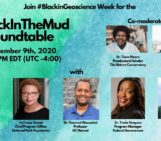
Imagine this: you are at work, casually discussing your weekend plans with colleagues. One is planning a hike with her husband. Another jokes about meeting his girlfriend’s parents for dinner, nerves barely concealed.
Then you mention a date night with your partner. The conversation halts. The atmosphere becomes taut. One of your colleagues makes a swift exit.
Later that day, your boss calls you into their office. You’ve been reported for sexual harassment. Confused, you ask why. Their reply: “Cool it on the gay stuff.”
This is a common type of workplace discrimination experienced by LGBTQ+ people. “Water-cooler” topics like dating and family life are considered routine for non-LGBTQ+ people. But when queer people speak on the same topics, we are often seen as unprofessional, inappropriate, or even predatory.
Inclusion Under Threat
Research shows that LGBTQ+ people are more likely to suffer from discrimination in the workplace compared to non-LGBTQ+ colleagues. This in turn impacts mental health & well-being, as well as work performance, engagement & retainment.
Myself and many other LGBTQ+ folk in STEM, have dedicated much of our career to improve inclusion in STEM. The recent dismantling of equality, diversity and inclusion initiatives, increases in anti-LGBTQ+ hate crime and the rise of anti-LGBTQ+ governments renders this work as even more critical.
The same ideological forces which employ regressive, anti-inclusion policies also champion anti-science rhetoric: anti-LGBT+ laws emerge whilst scientific evidence is discarded or distorted, for example. Anti-science and anti-LGBTQ+ attitudes reinforce each other by ignoring science in favour of pseudoscience whilst deploying misinformation and supressing education. The future of research and LGBTQ+ people in STEM is yoked together.
Against the rising tide of destructive policy, research is ringing one bell loud and clear: cisgender (i.e. not transgender) straight colleagues can help.
Queer In STEM
The workplace environment is hostile to LGBTQIA+ people: 40% of LGBTQ+ workers report high levels of workplace conflict compared to 29% of non-LGBTQIA+ colleagues. Whilst 30% of transgender employees have been fired, denied promotion, or experienced another form of workplace mistreatment due to their gender identity or expression
A 2025 UK report provides a representative case of the result: 39% of LGBTQ+ employees feel they must hide their sexuality or gender identity at work.
Just focusing on STEM fields, LGBTQ+ workers are more likely to experience career limitations, harassment, professional devaluation, and leave their professions. This effect was exacerbated if you are also a women and/or a person of colour.
Marginalisation In STEM
STEM professional cultures often promote a “depoliticization” or the bracketing of concerns perceived as social or political (like diversity and inclusion issues) away from day-to-day STEM work. When your identity and body are politicised you become at risk of being “bracketed off”; you become margnialised.
The notion that STEM fields are apolitical ignores how scientific investigations are influenced by people’s own ideas and bias. The result is a culture uncritically considered as “normal”.
Those who do not conform suffer: research tells us that if you are cisgender, heterosexual, able-bodied, white and male then you are more likely to be seen as naturally intelligent. When you are not, you are often considered as an exception or face the accusation that you have attained your position because of factors other than intelligence.
(De)politicisation In STEM
History teaches us that the notion of an apolitical science rendered researchers silently complicit in the oppression of their colleagues. From Nazi Germany to the USA’s lavender scare, the belief that science was a pure, neutral endeavour encouraged scientists to distance themselves from social, moral and political conflicts even whilst their colleagues were oppressed.
By adopting the stance that science was above the socio-political issues of the time, many researchers attempted to remove themselves from the moral consequences of their inaction. This silence abetted the political groups which abused science to justify their oppressive policy all whilst researchers were persecuted, ejected and executed; intellectual silence during periods of oppression amounted to political acquiescence.
It is not uncommon for the scientist to fear the perceived loss of integrity or objectivity that might accompany adopting a position on social or political topics. Too often, this fear induces scientists to avoid actions which may benefit those targeted by oppressive policy. Yet the process of knowledge production is itself political; we are concerned with the politics of truth.
Science is undertaken by people. It is governed and funded by people. It impacts people. Scientists are people; to suggest that science can be divorced from the political whilst its practitioners suffer is a moral blindness.
Research guides us by identifying the problem and suggesting solutions; in oppressive and anti-science periods, advocating for evidence-based decisions is needed for both science to endure and marginalised peers to thrive. As believers in for evidence-based action, what good is producing knowledge if it is not acted upon?
Discrimination In STEM
Discrimination against queer communities originates in social norms where being straight and gender-conforming are considered the default. People outside these expectations are considered abnormal and unnatural, and are frequently dismissed, excluded and sometimes punished, or not considered at all.
The mention of homophobia, transphobia or queerphobia often motivates the mind to conjure their most explicit forms: slurs, bullying, stereotyping, social exclusion and the like. However, discrimination takes multiple forms. It has a subtle nature and includes the promotion of prejudicial beliefs, policing expression, the denial of opportunities, and exclusionary policies – especially topics often built around cisgender straight people in mind, such as family policy.
This produces an unwelcome, stressful and demoralising working environment: working relationships are strained, workplace productivity decreases, whilst the risk of poor health increases. This can occur even when there isn’t explicit or direct discrimination.
How To Help: Allyship Is Action
What can be done? The research is clear: when LGBTQ+ folk are supported by their supervisors job satisfaction significantly increases, whilst support from co-workers significantly increases both job and life satisfaction in LGBTQ+ colleagues.
Advocate
Cisgender, straight colleagues should proactively speak on and promote LGBTQ+ inclusion, including both calling out individual behaviours & pushing for inclusive policies. Without a clear reporting process you LGBT+ colleagues are less likely to report discrimination.
Queer people should not be at the mercy of the level of progressivism in the workplace: they should not spend months, if not years, wondering if their cis/hetero colleagues will make them feel safe and comfortable enough to join work events, hang out, or earn promotions. Workplaces need advocacy to change policies so that everyone, out or not, can be their authentic selves at work.
As an ally, you can do this by, for instance, promoting the use of inclusive language in the workplace, asking whether family and medical leave consider non-traditional families and LGBTQ+ health issues, and adaptative fieldwork policies which include safety checks for LGBTQ+ colleagues.
Advocacy can also mean asking for training on inclusion, such as on LGBTQ+ vocabulary, unconscious bias and bystander intervention.
LGBTQ+ people are often excluded from data collection making it difficult to measure progress. As researchers, we may be compelled to increase surveyance but in doing so we must be cognizant that how we record and categorise data can limit how people report themselves leading to further exclusion.
Funding helps to systemically improve the experience marginalised people. Championing funds which support the inclusion or LGBT+ people, including us in decision-making by employing consultant seats, and supporting community networks by providing communication tools, platforms and funding events.
Engage
LGBTQ+ people and other groups are marginalised through the politicisation of their identities; by engaging in political decision-making scientists can help inform and support policy-making for the benefit of minority groups whilst advocating for evidence-based decisions.
Whilst scientists may be wary about approaching the political interface, but first consider the role you adopt: for example, will you be an adviser, an activist or a diplomat? There a different pathways for each role, and the response you receive will change depending on which role you adopt.
Policy-making process can be engaged through multiple pathways, such as by participating in EU consultations, writing policy briefs or publishing a letter. This can include contacting and meeting with your representative, such as your Member of the European Parliament.
With anti-science and anti-LGBT+ activity in the rise, community becomes paramount: when looking to make a change see who else is undertaking similar work. Look for science advocacy organisations such as Initiative for Science in Europe, LGBT+ science charities like Pride in STEM, and community networks such as EGU’s own Pride network.




